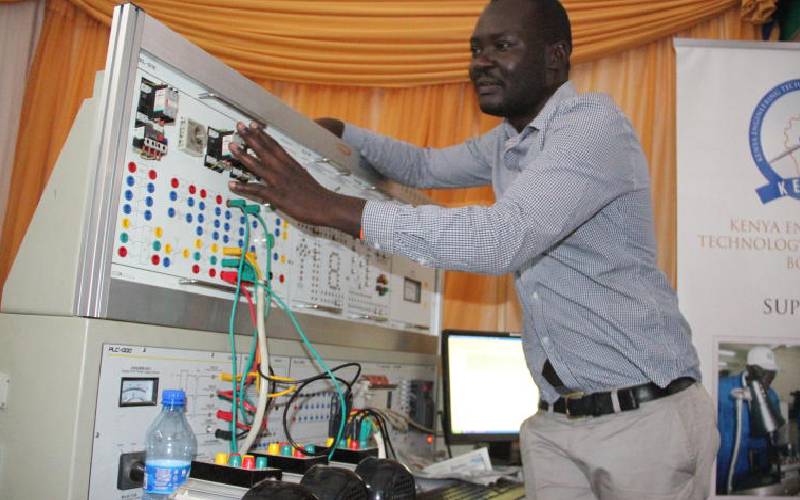×
The Standard e-Paper
Join Thousands Daily

Chris Owino showcasing his machines,during the launch of Kenya skills show (TVET) at the KICC on February 8, 2019.[Edward Kiplimo, Standard]
One thing stood out last week during the ‘Hands on the Future’ show in Nairobi as young innovators showcased their skills: With nature and innovations, nothing goes to waste.